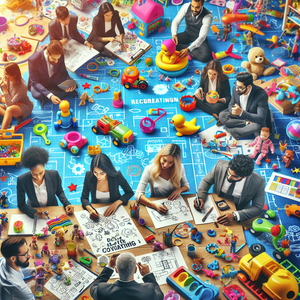Beyond Cuddles: The Therapeutic Benefits of Jellycat Plush Toys

At the core of the appeal of Jellycat plush toys is their inherent ability to provide comfort. The tactile sensation of hugging something soft and plush can evoke feelings of safety and warmth. For children, these toys often serve as transitional objects, helping them navigate the complexities of emotions and new experiences. A Jellycat toy can be a source of companionship during bedtime, a friend during difficult moments, or a confidant for secrets shared in the quiet of a room. For adults, the benefits extend beyond mere nostalgia. Many find that having a plush toy nearby can offer relief during stressful times. A study published in the journal Psychology Today indicates that physical touch can lead to the release of oxytocin, often referred to as the "love hormone," which helps to alleviate stress and anxiety. Snuggling with a Jellycat toy thus functions as a simple yet effective self-soothing technique. For example, a busy professional may find that squeezing a Jellycat toy during a stressful meeting can help calm their nerves and restore focus.
Reducing Anxiety and Stress
In today’s fast-paced world, anxiety and stress have become increasingly common. The presence of a Jellycat plush toy can serve as a tangible reminder to slow down and breathe. The act of cuddling can lower heart rates and promote relaxation. In therapeutic settings, plush toys are often used as tools to help clients express emotions and cope with anxiety. For instance, in play therapy, children are encouraged to interact with toys, enabling them to articulate feelings they might otherwise struggle to express. Jellycat toys, with their soft textures and friendly designs, can facilitate this process, allowing children to project their fears and worries onto the toy, thus making it easier for them to discuss their feelings with a caregiver or therapist. A child who feels anxious about starting school may find comfort in a Jellycat toy, using it to express their fears in a safe and non-threatening way.
Fostering Emotional Resilience
Beyond immediate comfort, Jellycat plush toys can help foster emotional resilience in both children and adults. By providing a safe outlet for emotional expression, these toys can help individuals develop coping mechanisms for dealing with life's challenges. Children who grow up with a beloved plush toy often learn to navigate feelings of loneliness or sadness through imaginative play, creating scenarios where their toy takes on various roles, such as a superhero or a comforting friend. Moreover, adults may find themselves reminiscing about their childhood toys during times of stress, leading to a sense of nostalgia that can be both comforting and grounding. This connection to the past can enhance their emotional resilience, allowing them to confront current challenges with a sense of hope and familiarity. For instance, an adult facing a significant life change may find unexpected comfort in a Jellycat toy, evoking memories of a simpler time when their worries seemed far less daunting.
The Role of Connection
The bond formed with a Jellycat toy is more than just a fleeting fancy; it's a connection that can last for years. Many people recount stories of their childhood plush toys and the pivotal roles these companions played during formative moments. As adults, the act of holding onto these toys can evoke memories that remind us of simpler times, providing a mental sanctuary in a chaotic world. Additionally, for individuals dealing with grief or loss, a Jellycat plush toy can serve as a comforting reminder of love and affection. The soft presence of a toy can mitigate feelings of isolation, reinforcing the idea that connection, even with an inanimate object, can provide solace during difficult times. For example, a person mourning the loss of a loved one may find solace in a Jellycat toy that reminds them of shared moments and cherished memories.
Jellycat plush toys are more than just adorable collectibles; they are emotional lifelines that offer comfort, reduce anxiety, and promote well-being. Whether serving as a source of comfort for a child navigating new experiences or as a nostalgic companion for an adult seeking solace, these plush toys have a unique ability to touch our hearts. By recognizing the therapeutic benefits of cuddling with Jellycat toys, we can appreciate their role in enhancing mental health and emotional resilience across all ages. In a world that often demands so much from us, it’s the simple joys—like a soft, cuddly friend—that remind us of the power of comfort and connection. As we embrace these whimsical companions, we may find that the path to emotional well-being can be as simple as a hug.
Child Psychologist
Children’s hospitals, private practices, schools, and mental health clinics
Core Responsibilities
Conduct assessments and therapeutic interventions to address emotional and behavioral issues in children.
Develop tailored treatment plans that incorporate play therapy techniques, using tools like plush toys for emotional expression.
Collaborate with parents, teachers, and caregivers to support the child’s mental health development.
Required Skills
Doctorate in Psychology (Ph.D. or Psy.D.) with specialization in child psychology.
Proficiency in play therapy methodologies and child development theories.
Strong communication skills to engage effectively with children and families.
Toy Product Designer
Toy companies (e.g., Jellycat, Hasbro, Mattel), design firms, and manufacturers
Core Responsibilities
Conceptualize and design plush toys, ensuring they meet both aesthetic appeal and safety standards.
Collaborate with marketing teams to understand consumer preferences and trends in the toy industry.
Create prototypes and conduct testing to gather feedback on functionality and comfort.
Required Skills
Bachelor’s degree in Industrial Design or a related field.
Strong understanding of materials and manufacturing processes in toy production.
Creativity and a passion for children's products, along with a portfolio showcasing design work.
Occupational Therapist (Pediatric Focus)
Schools, pediatric clinics, rehabilitation centers, and hospitals
Core Responsibilities
Assess children’s needs and develop customized therapeutic interventions using play-based methods.
Utilize plush toys as tools to help children improve fine motor skills and emotional regulation.
Work with families to create supportive environments that enhance the child’s development.
Required Skills
Master’s degree in Occupational Therapy and state licensure.
Experience working with children with developmental delays or emotional challenges.
Ability to create engaging, therapeutic play activities.
Mental Health Counselor
Counseling centers, private practices, community health organizations, and schools
Core Responsibilities
Provide one-on-one and group counseling sessions to help clients cope with anxiety, depression, and other mental health issues.
Incorporate art and play therapy methods, using items like plush toys to facilitate emotional expression.
Develop treatment plans and monitor clients’ progress towards their mental health goals.
Required Skills
Master’s degree in Counseling, Social Work, or a related field.
Certification as a Licensed Professional Counselor (LPC) or Licensed Clinical Social Worker (LCSW).
Empathy and strong interpersonal skills for building rapport with clients.
Marketing Specialist (Consumer Products)
Toy manufacturers, marketing agencies, and e-commerce platforms
Core Responsibilities
Develop and execute marketing campaigns to promote plush toys and related products, emphasizing their emotional benefits.
Conduct market research to identify trends and consumer preferences in the toy industry.
Collaborate with product development teams to align marketing strategies with product features and benefits.
Required Skills
Bachelor’s degree in Marketing, Business, or a related field.
Experience in digital marketing, social media strategies, and content creation.
Strong analytical skills to evaluate campaign effectiveness and market trends.


